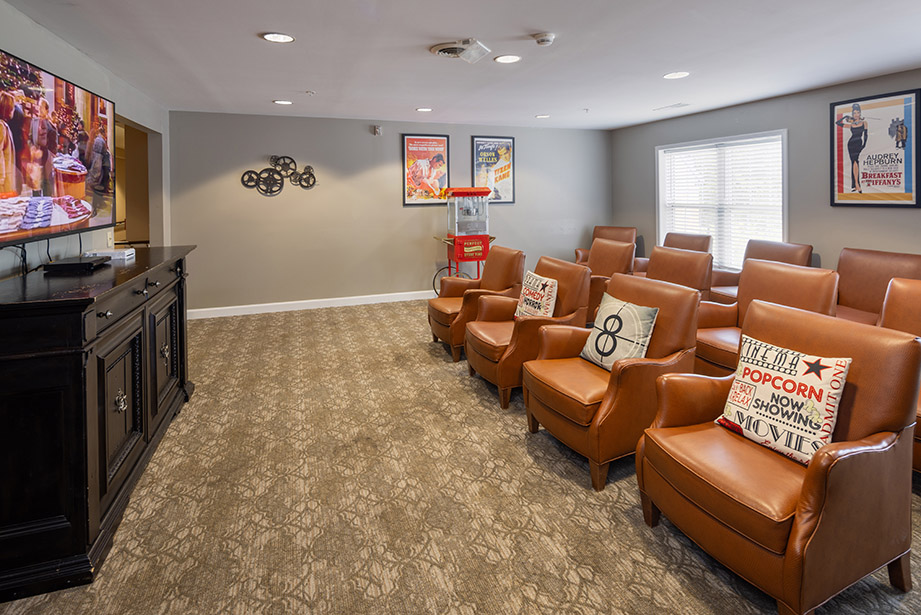Caring for a parent with dementia can be an overwhelming experience that brings both emotional and practical challenges. Dementia impacts not only the individual but also their families, who often struggle with decisions about care and visitation in assisted living communities.
While regular visits are crucial for maintaining emotional bonds and supporting your loved one’s well-being, it’s essential to strike a balance that considers both your and your parent’s needs.
The frequency of your visits should align with your preferences and schedules while also considering your loved one’s cognitive abilities and emotional state. Too many visits can sometimes be overwhelming for individuals with dementia.
Understanding the Needs of a Person with Dementia
Different types and stages of dementia affect behavior and cognition in different ways.
Dementia is a progressive condition characterized by decreased memory, reasoning, and other cognitive skills, impacting daily life and activities.
Various types of dementia include:
- Alzheimer’s disease: The most common type, marked by memory loss and confusion.
- Vascular dementia: Caused by reduced blood flow to the brain, leading to cognitive impairments.
- Lewy body dementia: Includes symptoms like hallucinations and movement issues.
- Frontotemporal dementia: Affects personality and behavior more than memory.
Dementia often progresses in stages, such as:
- Early stage: Mild symptoms, including forgetfulness and slight confusion.
- Middle stage: Increased memory loss, difficulty with language, and noticeable personality changes.
- Late stage: Severe cognitive decline, loss of ability to communicate, and need for round-the-clock care.
The Benefits of Regular Visits
Regularly visiting your loved one offers several benefits.
Emotional & Psychological Support
Your visits are more than just spending time together. They provide comfort and familiarity that can significantly improve your parent’s emotional well-being. Regular visits can help reduce feelings of anxiety and depression, creating a more positive atmosphere.
Monitoring Health & Well-Being
Frequent visits allow you to stay connected with your loved one and ensure they receive the care they need for a high quality of life. By observing their condition and talking with the care staff, you can help identify any changes in your parent’s behavior and advocate for their needs.
Enhancing Social Connections
Social isolation can exacerbate cognitive decline. Regular visits help maintain social connections, stimulating your parent’s mind and improving their overall quality of life.

Factors to Consider in Visit Planning
Several factors should be considered to ensure your visits benefit both you and your parent.
Daily Routine & Best Times for Visits
Understanding your parent’s daily routine can help you plan visits at times when they are most alert and receptive. For example, mornings might be better for some individuals, while others are more responsive in the afternoon.
Maximizing Shorter, More Frequent Visits
Aim for consistent visits, but be flexible to accommodate your parent’s changing needs. Shorter, more frequent visits can be beneficial, especially if your parent is experiencing significant memory loss or fatigue. This can help prevent overwhelming them and allow for more meaningful interactions.
Community Visitation Policies
Some communities may have specific guidelines or restrictions on visitation hours, so familiarize yourself with your parent’s community and plan your visits around these. Consider using video conferencing or phone calls if in-person visits are challenging.
Overcoming Challenges in Visiting
Visiting a parent with dementia can come with its own set of challenges. Here are some strategies to help overcome them.
Dealing with Guilt & Balancing Personal Time
It’s natural to feel guilty about not visiting often enough, but it’s important to balance your visits with personal time to prevent burnout. Remember, taking care of yourself helps you be a better caregiver.
Coping with Changes in Behavior
Dementia can cause unpredictable changes in behavior, which can be difficult to handle. Take some time to learn about the condition and develop coping strategies to manage these changes effectively.
Making Visits Engaging & Comfortable
Bring familiar items like photos or favorite music with you to create a more comforting environment. Engage in activities your parent enjoys, such as simple card games or walks in the garden.
How to Make the Most of Every Visit
When it comes to visits, quality is just as important as quantity. Here are some tips to make each visit more impactful.
Activities & Conversation Starters
The activities you choose to do while visiting your loved one with dementia may change over time as their condition progresses. It’s important to adapt your approach to their current abilities and preferences.
- Early stage: Focus on discussing recent events, sharing family news, and reminiscing about the past.
- Middle stage: Play simple games, look through photo albums, or enjoy music together.
- Late stage: Focus on sensory experiences, like hand massages or listening to soothing music.
The Power of Touch & Connection
Non-verbal communication, including holding hands or giving gentle hugs, can be incredibly meaningful for individuals with dementia. These acts of physical touch provide comfort, reassurance, and a sense of connection.
Remember, even when words may fail, the power of touch can bridge the gap and convey your love and support.
Find the Right Balance for Your Parent
If you’re looking for support for a parent or loved one with dementia, we’re here to help. State Street Assisted Living is a Lilac Trace Memory Care neighborhood, a supportive and enriching environment for individuals with dementia operated by dementia-trained caregivers.
We value each resident’s unique history and personality, tailoring our approach to meet their individual needs. By working closely with families, we strive to provide the highest quality of care.Contact us today to schedule a visit and see how Lilac Trace Memory Care can make a difference in your loved one’s life.










